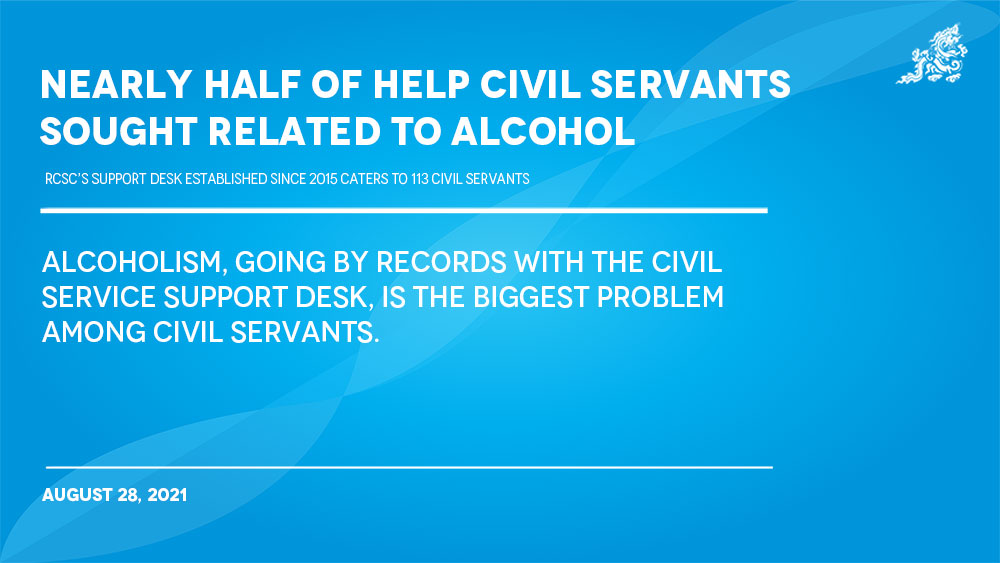RCSC’s support desk established since 2015 caters to 113 civil servants
Yangchen C Rinzin
Alcoholism, going by records with the civil service support desk, is the biggest problem among civil servants.
Of the 113 civil servants, who sought help from the Royal Civil Service Commission’s (RCSC) support desk since its establishment in 2015, 50 cases were related to alcoholism.
Of the 50 alcoholism cases, 19 civil servants have fully recovered after rehabilitation programmes that include sending to rehab centres and detox services. These civil servants are also back to work. Four civil servants relapsed and are back to rehab for the second time.
RCSC’s chief human resource officer, Sherab Zangpo, said the number of civil servants who sought help is gradually increasing.
Only three people sought help in 2015. 21 civil servants are being monitored as of now.
The chief said three civil servants are currently undergoing rehabilitation at rehab centres. “Two civil servants voluntarily resigned from the service when they could not recover and refused to undergo rehabilitation with the fear of social stigma.”
RCSC officials said apart from alcoholism and mental health issues, four of the total cases were related to drug issues.
Data maintained by the RCSC also showed that more than 10 cases of 113 were related to mental health issues.
Most of these cases were related to civil servants suffering from stress-related to family issues.
RCSC officials said there were cases where civil servants ran away from the rehab and they had to look for them and take them back to rehab.
Officials explained civil servants inquire if they would be reprimanded for seeking rehabilitation. “Many fear seeking help because they are scared they might lose their job,” an official said.
Meanwhile, except for verbal complaints of sexual harassment at the workplace reported through telephone, the “Go to Person” (GtP) instituted in 2018 to help civil servants report incidences related to sexual harassment at the workplace including official travels, conferences and meetings, did not receive any written complaints.
The commission, however, received at least two to three anonymous calls every year on harassment of all sorts. Some complaints include seniors making them work throughout the week including weekends.
Sherab Zangpo said that the well being division is focused on making civil servants aware of various forms of harassment and where to report more than receiving a complaint. “It’s not necessary that victims have to report to the RCSC. They can report to respective agencies too like RENEW or NCWC directly.”
Civil Service Support Desk
Sherab Zangpo said that apart from work, the well being of civil servants is also a key objective for RCSC.
The support desk would help civil servants facing issues that hinder their performance. It also provides mentoring and counselling.
Sherab Zangpo said the division was initiated so that they could take care of civil servants and motivate them.
He explained that right after recruitment, civil servants are provided with an induction course to understand the work culture. “It will then be followed by a monitoring programme to help civil servants’ professional growth by retired civil servants.”
Civil servants are also given financial and literacy training.
Sherab Zangpo said that once in service there are various issues and challenges civil servants go through. “The division also gives them mindfulness retreat to enhance emotional intelligence among civil servants.”
Health camps, annual health checkups and hoops for health (basketball game) are also a part of the wellbeing programme for civil servants.
“We also sensitise civil servants before retirement so that they are mentally, emotionally and socially prepared,” Sherab Zangpo said. “We’ve exit management programme where a civil servant would be given a preparatory month for retirement. The respective human resource officers should help the concerned civil servant to prepare documents for retirement so that everything is ready on the day the person retires.”


